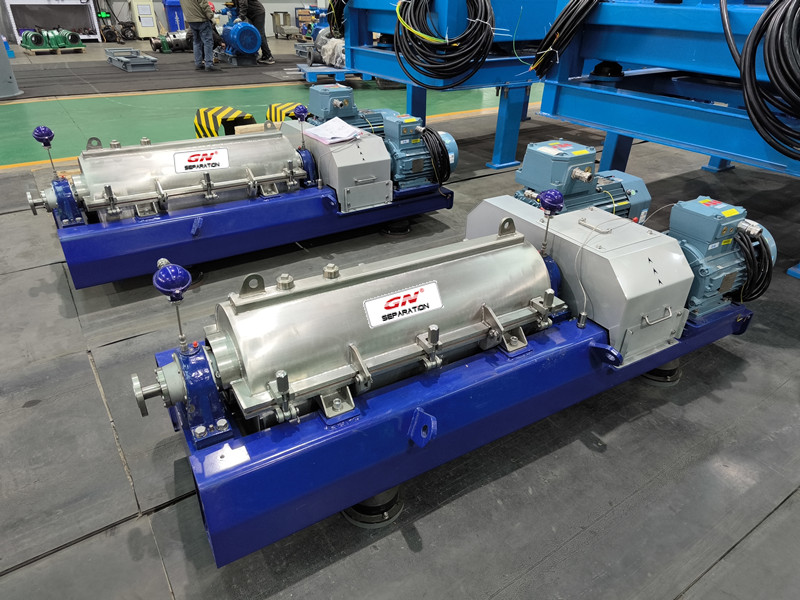When operating a decanter centrifuge, it’s essential to adhere to specific precautions to ensure safe and efficient operation. Decanter centrifuges play a crucial role in various industries, from wastewater treatment to oil and gas drilling, by separating solids from liquids or liquids from liquids based on their density differences. To maximize the performance and lifespan of the decanter centrifuge while minimizing the risk of accidents or damage, operators must follow certain guidelines and precautions. These precautions encompass various aspects of operation, including setup, maintenance, and safety protocols. By understanding and implementing these precautions, operators can maintain a smooth and productive workflow while safeguarding both personnel and equipment.
1. When abnormal noise or other abnormal phenomena occur during the operation of the centrifuge, it should be shut down immediately for inspection. It is not allowed to adjust, maintain and troubleshoot the centrifuge while it is running. Use it when adjusting, maintaining and troubleshooting The necessary protective measures.
2. Rotating parts such as the centrifuge drum, main shaft and other important parts should be replaced or repaired in time when the corrosion is severe or the drum is obviously unbalanced. Unsafe emergency measures such as surface repair welding shall not be used; centrifuge parts are damaged It needs to be replaced in time. As soon as important parts such as transmission parts, load-bearing parts and safety-related parts are found to have cracks, serious corrosion, and unsafe factors that affect strength and reliability, stop operation immediately.
3. The technical conditions of the centrifuge during operation must ensure that its main technical parameters (vibration, noise, temperature rise indicators) meet the relevant standards.
4. In view of the corrosiveness and use environment of the centrifuge separated by the medium, the centrifuge scrapping cycle shall be formulated in accordance with relevant regulations; if cracks or severe corrosion of key components such as the drum, main shaft, base, scraper, etc. are found, there is no repair value. Mandatory scrap immediately.
5. Monitor and record the operation of the centrifuge, describe in detail the fault conditions, causes and solutions during the operation of the centrifuge; and make a record of shifts.
6. The key parts of the centrifuge: drum parts, base parts, casing parts, scraper parts, electrical control, etc. must be adjusted and maintained by personnel with professional technical knowledge and special skills.
7. The daily maintenance and repair of the centrifuge, such as daily lubrication, bolt tightening, etc., shall be carried out by personnel trained in the use of the centrifuge.
As a leading manufacturer of decanter centrifuges, GN Separation prioritizes product quality and user benefits. High-quality centrifugal casting or forging stainless steel materials are used for raw materials, while hard alloy protection is applied to wearing parts. GN utilizes advanced CNC machining equipment to ensure precision in manufacturing centrifuge parts. In addition to low and medium-speed dynamic balancing, GN implements high-speed dynamic balance processes for optimal centrifuge performance. GN decanter centrifuges are widely utilized across industries and have earned high praise from customers in over 60 countries and regions worldwide.
